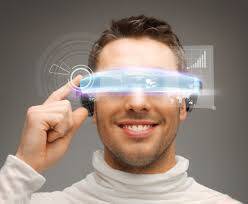

According to a report by Deloitte, Smart Glasses, Fitness Bands and Watches are predicted to sell about 10 million units in 2014, generating $3B. By 2020, sales are predicted to surpass 100 million units.
For physicians, wearable tech can help to monitor and diagnose disease, and for patients, these devices help them to take control of their own health. According to a report by PewResearch seven in ten U.S. adults say they track at least one health indicator. This results in enhanced doctor/patient interactions – where patients can have greater access to data about their own bodies, be more involved in their overall health, leading to fewer doctor visits.
According to Gartner3, the wearable fitness and health monitor roadmap offers strong consumer potential. The industry has begun to shift from fitness-focused technologies to a focus on wellness and the maintenance of health. This can be seen in the development of heart rate monitors, and devices for fall detection and reporting. By 2016, Gartner expects certified devices for blood oxygen monitoring, hydration monitoring and blood sugar monitoring.
As the technology continues to evolve, one thing to consider is that the fundamental output of these wearable devices, whether on the health side or the fitness side, is data. As users begin to produce data that can be seen by medical establishments, resistance can occur. People may not want all the data visible to their doctors. To work around this, patients will need to own their data and be able to control what data is visible to their doctors. Much like managing a bank account, patients will need to manage their healthcare data.
Although the future of wearables in the healthcare industry is promising, it also has its fair share of challenges. Incorporating data from wearables into a daily routine for physicians at hospitals will not happen overnight. Most hospitals and medical offices have specific processes, so at the end of the day, these technologies will have to fit into current workflows with minor changes so as to speed up adoption.
“The thing to consider is controlling the data that is sent. All alerts are not meaningful to be sent, but by applying data analytics, to the data, we can provide actionable data to our physicians”, Said Anoo Nathan, CEO of Smart Monitor and speaker at TiEcon 2014. “If you take an example of a patient wearing our smart watch to monitor seizures, data analytics can generate a report with the number of seizures, the time of the seizures and the length of each episode over a period of 30 days, 60 days, or 90 days. All of a sudden, instead of relying on incomplete written note books where the onus was on the patient to keep a log, the doctors are receiving reports, and can make intelligent decisions on how to guide patient therapy and care based on a complete data set.”
Adapting to and adopting these technologies can be done; however, there is a cost in terms of money and time, and a need for a strong champion in hospitals and clinics to drive change. There will also be an extensive FDA review process for wearable technologies, which may result in longer adoption times for some of these devices. However, these devices are benign, with really small embedded sensors so the risk is non-existent. HIPPA has clear guidelines to protect patient data, so patients will have to take ownership of their data and control who its access. Data security and authentication will also be important factors.
TiEcon 2014 is the largest entrepreneurial conference in the world to be held in Silicon Valley May 16-17 2014, showcasing entrepreneurial opportunities at the confluence of IoT, Cloud and Big Data. Learn more about the event here, and its upcoming Healthcare/Technology tracks.